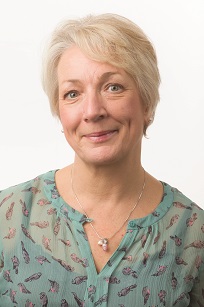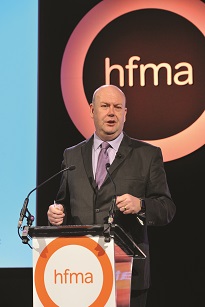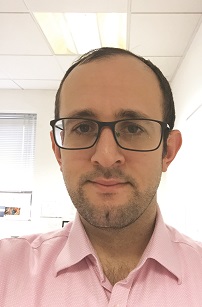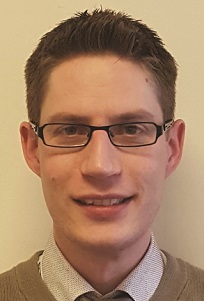Feature / Good education
‘There is a noticeable lack of qualifications in the healthcare finance arena,’ says HFMA director of education Alison Myles (right). ‘If you have your professional accountancy qualification, what else can you look at to develop your studies further, alongside your day job, or help yourself prepare for a next career move? And for those people currently in healthcare who want to understand more about the financial side, without actually becoming an accountant, there are precious few options.’

In fact, when the HFMA undertook some research into the area, it found just one foundation-level (pre-degree) qualification that dealt directly with healthcare finance, but without going down the pure accountancy route. For accountants, there were plenty of MBAs and many specialising in healthcare management – but none that provided specific opportunities to tailor studies around healthcare finance.
So it decided to fill the space itself. In December, the HFMA launched two masters-level qualifications. The HFMA diploma and higher diploma provide good qualifications in their own right. But successful completion of both diplomas (each worth 60 credits) would entitle the student to move on to an MBA top-up programme (worth a further 60 credits) being developed by the HFMA’s partner BPP University. A programme will shortly be put to BPP’s School Review Board for formal validation.
The new qualifications represent a natural progression for the HFMA. The association is an authority on NHS finance and governance issues – with a focus on technical detail and providing practical support to finance practitioners. It runs a successful and well-regarded events programme, but in recent years it has also established itself as a leading provider of e-learning.
These e-learning modules have been particularly popular with newcomers to NHS finance teams and with non-accountant budget holders – providing short (typically up to 2.5 hours) introductions to key financial topics such as budgeting, business cases and costing. Completion of five modules led to an Introductory award in healthcare finance.
But the new diplomas take the HFMA to a completely different level in terms of qualifications, providing higher level accredited qualifications (all three modules of the qualifications lead to masters or level 7 awards). But the qualifications do build on the approach at the heart of e-learning by providing a flexible, online study route that is designed to suit students working full-time in the NHS.
The diploma and the higher diploma each require the completion of three 20 credit modules (60 credits in total for each diploma). One module within the diploma is mandatory (How finance works in the NHS), with all other modules optional. To access the diploma, candidates must have two years professional experience in the NHS, otherwise they will first be required to take the mandatory module before being able to register for the wider diploma. Successful completion of this diploma will enable entry to the higher diploma.
Professionally qualified accountants (CCAB or CIMA) with at least two years’ post-qualification experience in healthcare may be eligible to gain a 60-credit transfer and gain direct entry to the higher diploma.
Completion of the higher diploma will enable students to register for the full MBA – which is likely to involve either a 60-credit dissertation or a 30-credit work-based project and two further modules.
This will be a significant undertaking by anyone taking on the qualification. Each module is led by a tutor with direct experience of working in NHS finance at a senior level and is expected to last 15 weeks, with 10 weeks of teaching and five weeks working on an assignment. Students should expect to set aside 200 hours in total per module – averaging about 13 hours a week for study, including up to two hours for a ‘live’ webinar, and completion of assignments.
Each week’s topic comes with a recommended reading list and exercises to demonstrate understanding of the subject. Students will also have access to discussion forums to raise specific questions or talk around the subjects.
The first formal intake of students will be in May 2017, and there will be five optional modules to choose from as well as the mandatory (for the diploma) How finance works in the NHS module. Fifteen healthcare staff have been testing out two of the modules to help the HFMA make any final tweaks ahead of the first intake – some looking at the mandatory core module and others taking the optional module on value (Creating and delivering value). Early feedback from this pilot exercise has been very positive (see ‘Pilot lessons' below).
Mrs Myles (above) says the qualification caters for people with lots of different backgrounds – clinical, non-executive, general management and administration – but that, at least initially, the core interest is expected to come from the NHS finance profession.
‘We anticipate a typical candidate might be a qualified accountant with a few years’ experience. They’ve studied fairly recently and are looking for something to support their career progress,’ she says. However, early interest is coming from a broad spectrum of potential candidates.
She adds that the association was determined to produce a structure that enabled people to study flexibly – recognising people would be looking at the qualification alongside busy day jobs that often require more than nine-to-five hours. But practical content was also important.
‘We wanted the content to be relevant to the issues that people are dealing with,’ she says. ‘The NHS faces major challenges in the coming years as it looks to transform services around new models of care. And given the financial context, it has to maximise value – measured in both quality and cost. So we wanted something that might support people to think through these issues – for example while studying our value module – and then be better prepared to put the principles into action back in their organisations.’
The ‘practical support’ approach can also be seen with plans to add a further optional module on costing. With NHS Improvement leading a major Costing Transformation Programme – backed by Lord Carter’s review of productivity – the association is in discussion with the oversight body about developing this module. This is seen by NHS Improvements as part of a package of measures to raise the profile of costing in the NHS, increase the costing function and broaden its skills.
Paul Assinder, a former national president of the HFMA, is one of six tutors who will support students through their study, leading discussions and tutorials. With more than 20 years’ experience as a finance director in the NHS, in commissioning and provider bodies, he also has senior-level private sector experience, currently as a management consultant. And he is also no stranger to academia, teaching on a finance MBA as a visiting lecturer at Wolverhampton University’s business school.
He was instrumental to creating, and now teaches, the Creating and delivering value module. He says that, on top of a rigorous and assessed development process, this final refinement step – with the pilot students – helps get the content right. ‘I’ve been really impressed by the commitment of the pilot cohort,’ he says. ‘They are doing a real service to the association.’
He believes the HFMA qualifications are distinct from other offerings. ‘We are trying to apply some of the more esoteric and academic content you might find in similar programmes to the day-to-day needs of individuals working in the NHS,’ he says.
Managers today need to be more general business professionals, as well as specialists in their own field, and the qualifications recognise this context.
He insists the HFMA’s position as an authority on NHS finance – with a recognised position as a producer of quality publications, events and training – means students will end up with a qualification that carries weight across the NHS. He believes the programme will prove attractive to finance professionals and other NHS staff outside the finance circle – and that studying in a group of finance and non-finance professionals will lead to rich discussions and more practical value.
His value module takes an ‘unashamedly economics perspective’, he says – for example, looking at efficiency requirements, investment planning and national allocation policy through the lens of health economics. ‘The aim is to give the students a different perspective on what they are often doing on a daily basis,’ he adds.
HFMA chief executive Mark Knight (right) is excited by the new qualification. ‘We’ve put a lot of time and planning into this qualification and it is a key landmark in the development of the association. We’ve listened to what our members have told us about what they and the broader community want and need to support their further development as healthcare professionals.
is excited by the new qualification. ‘We’ve put a lot of time and planning into this qualification and it is a key landmark in the development of the association. We’ve listened to what our members have told us about what they and the broader community want and need to support their further development as healthcare professionals.
‘It is an opportunity for professionals to enhance their skills and career. But it will also serve the NHS well. The content will not only deliver a more qualified and informed workforce in future, but we believe it will help people better address the challenges they face on a daily basis.
'The whole finance function and the wider workforce will need to develop new skills and different perspectives as the NHS looks to transform the way it delivers services. And we are convinced these new qualifications will help professionals to develop the right skills and attributes to make this transformation a success.’
This is an exciting development for the association and it could lead to the award of a first MBA in healthcare business and finance within the next two years
Find out more about the qualifications on the HFMA website, click here
Pilot lessons: Loraine Penman
Senior information officer, NHS Education for Scotland
Module, C1: How finance works in the NHS
Loraine Penman qualified with CIPFA back in the 1990s while working at Leeds Teaching Hospitals NHS Trust, but her career has also involved working in local government and the private sector, providing consultancy services to the NHS.
More recently, she has worked in Scotland, with her latest position providing temporary cover at NHS Education for Scotland. Her role heading management information means she covers reporting (including finance and cost data) as well as systems support.
She is a keen supporter of training and development and sees her piloting of the How finance works module as a good way of helping the association to develop a worthwhile programme. She admits that, given her career and experience, she is up to speed on a lot of the content – although it provides a good refresher and there are always new things to learn.
Ms Penman admits she is viewing the assessment with some trepidation, given the gap since her last formal academic activity. But recognising the assessment requires a ‘different frame of mind’ and skills that she doesn’t typically use in the workplace, she is also looking forward to the challenge. She adds that the live discussions are really useful – she has been particularly interested listening into some of the issues raised by commissioning staff in England – and that the discussion forums could be really helpful once they are more populated with students using them more often.

Pilot lessons: Andy Bell (right)
Acting finance director, London
Ambulance Service NHS Trust
Module O4: Creating and delivering value
A former graduate of the national financial management training scheme, Andy Bell has always taken CPD seriously and was already starting to think about an MBA when the HFMA announced its own qualifications. Volunteering to test a module was immediately appealing, especially as it has been 10 years since he completed his accountancy qualification. ‘It was an opportunity to test if the qualification was worthwhile and whether I could manage it alongside a busy day job,’ he says.
The time commitment – estimated at 13 hours a week – is a big consideration for any masters student undertaking studies alongside a full-time job. Talking to Healthcare Finance four weeks and four topics into the course, Mr Bell says it has proved to be manageable and he is impressed by the quality of the content. ‘The value model is strategic and ties in well with what I do at work – perhaps even more so having stepped up from deputy finance director to acting director,’ he says. ‘There is a direct connection with the issues I am dealing with in my organisation and across the local system.’
The online portal and activity e-book approach is really helpful, he says. Beyond that it is about good time management – having material loaded on his ipad to read on his daily commute and getting in the habit of doing additional reading in the evenings.
Early release of the final module assessment – undertaken in weeks 11 to 15 – has also helped Mr Bell to target his learning appropriately. ‘I was worried I might be getting into something completely academic, but it has proven to be the polar opposite and is aimed at providing real practical support,’ he says. He will see how the module goes, but will definitely consider taking the full higher diploma with a view to moving onto the MBA.
Pilot lessons: Chris Probert (right)
Finance manager, Aneurin Bevan University Health Board
Module, C1: How finance works in the NHS

Chris Probert is impressed with the quality, depth and range of the content in the diploma’s mandatory module. And he is attracted by the idea of gaining a further qualification to support his career development.
‘There is very little in further education that is directly relevant for a qualified accountant or just someone wanting to get a recognised qualification in healthcare finance,’ he says. While experience is important, he is keen to supplement this with a further recognised qualification. And he was instantly drawn to something that was directly relevant to his day job rather than just having a generic relevance.
And although he has also fed back some comments about the slight English focus of the module, he has been interested to understand more about how systems work outside Wales.
However he says would-be students should be prepared to put the hours in that the diploma requires.
Mr Probert qualified with ACCA in 2011, but admits that it has been ‘hard getting back into the studying habit’ – especially as it now has to be fit around a busy day job.
‘It works out at around two hours a day,’ he says, and you need to be disciplined to prevent falling behind. He suggests that at some points in the year – year-end and working towards submitting costing returns – work pressures would make it hard to find enough time. ‘If I was doing this for real, rather than as part of a pilot process, I would want to talk to my employer about how they might support me in making the time,’ he says.
Pilot lessons: Michelle Gilmour
Directorate accountant for planned care, NHS Fife
Module 04: Creating and delivering value
It has been 12 years since Michelle Gilmour finished her ACCA qualification and she had already started to think about an MBA as a next step. ‘Supporting the HFMA in testing the new qualification was a great opportunity and a perfect way to find out how I would cope with the workload on top of my day job,’ she says.
She says her life has changed since she was last in serious study mode – she is now married and has two children. The course comes with an estimated 13 hours a week time commitment and she says you need to be structured and organised to fit it all in.
This has meant early mornings at the office, using lunchbreak and even listening to recordings on her walked commute to work. ‘The reading is the most demanding part of it – the recommended list is quite extensive,’ she says.
However she’s enjoying the material. Value is on everybody’s agenda at the moment, so it is no surprise to hear she finds the content sits comfortably alongside her day job in supporting planned care. She admits she has even picked up some specific ideas from the sections on improvement techniques and cost improvement programmes. Weekly tutorials have proved challenging to get to – frequently clashing with unavoidable work meetings. But she says the ability to catch up in your own time on-line is really convenient.
As a relatively small test group, she says interaction in these sessions hasn’t been huge, but imagines this would increase dramatically with a full-sized study group once the qualification goes properly live.
Has the workload put her off taking her MBA aspirations forward? No, but she says she would have to think carefully about the time needed to do a whole diploma and to think through her next career steps before making any long term commitment to the full qualification.
Related content
This event is for those that will benefit from an overview of costing in the NHS or those new to costing and will cover why we cost and the processes.
Mindset and the neuroscience of leadership - Lunch and Learn